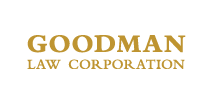Newsletter – September 2017
ABA’s Antidiscrimination Revised Model Rule 8.4 Hotly Contested
In August, 2016 the American Bar Association House of Delegates approved Resolution 109 to amend Model Rules of Professional Conduct 8.4 to bring into the black letter of the Rules an antidiscrimination and anti-harassment provision. (ABA MR 8.4: Misconduct). In March 2017, the California Board of Trustees voted 7-6 (with President Jim Fox breaking a 6-6 deadlock) of sending proposed Rule 8.4.1 to the California Supreme Court.
The New Language of MR 8.4(g)
Under the new Rule, it is professional misconduct for a lawyer to:
“(g) engage in conduct that the lawyer knows or reasonably should know is harassment or discrimination on the basis of race, sex, religion, national origin, ethnicity, disability, age, sexual orientation, gender identity, marital status or socioeconomic status in conduct related to the practice of law. This paragraph does not limit the ability of a lawyer to accept, decline or withdraw from a representation in accordance with Rule 1.16. This paragraph does not preclude legitimate advice or advocacy consistent with these Rules.” California’s proposed Rule 8.4.1 is modeled on the ABA Model Rule 8.4, in that a lawyer is subject to discipline for harassing or discriminating against clients and/or employees based upon a protected class or unlawfully retaliating against persons who complained about harassment or discrimination.
The ABA States Its Previous Rule Did Not Go Far Enough
In stating the need for the Amendment, the ABA pointed out the inadequacy of the previous Model Rule of Professional Conduct 8.4, adopted by the ABA House of Delegates in August 1998. That Rule held that certain conduct may be considered “conduct prejudicial to the administration of justice” when a lawyer knowingly manifests prejudice against certain groups of persons “while in the course of representing a client but only when those words or conduct are also ‘prejudicial to the administration of justice.'” (Revised Resolution 109,4)
The ABA’s Report on Revised Resolution 109 states that the adoption of the new Rule puts lawyers on express notice that refraining from discrimination is a specific requirement, not merely a comment regarding the administration of justice, as it had been previously. “Changing the Comment to a black letter rule makes an important statement to our profession and the public that the profession does not tolerate prejudice, bias, discrimination and harassment.” (Id.)
Immediate past ABA President Paulette Brown, during public hearing on the proposed amendments to Rule 8.4 said, “Discrimination and harassment … is, and unfortunately continues to be, a problem in our profession and in society. Existing steps have not been enough to end such discrimination and harassment.” Prior to the ABA adoption of the new Rule, twenty-five states had already adopted antidiscrimination or anti-harassment provisions into their own rules of professional conduct, California included. (CRPC 2-400 prohibits a lawyer from “discriminating” in hiring employees or taking on clients).
Each State Decides Its Own Rules of Professional Conduct for Attorneys
The ABA’s Model Rules of Professional Conduct are not self-executing. Each state drafts and adopts its own rules of professional conduct for attorneys. Therefore, it is up to the discretion of each state to adopt, with or without amendments, any proposed ABA rule. California is in the middle of its second recent attempt to revise its ethical rules.
A number of states have voted against adopting the changes to the Model Rule, including Illinois, South Carolina, Nevada, Montana, and Pennsylvania.
Arguments in Opposition to the New Rule
The Disciplinary Board of the Supreme Court of Pennsylvania stated: ” It is our opinion … that the breadth of ABA Model Rule 8.4(g) will pose difficulties for already resource-strapped disciplinary authorities.”
Some opponents argue that the new rule is too vague, and enforcement would violate due process. Proponents of this argument point out that the ABA BLS Ethics Committee, the Litigation Section, and the Standing Committee on Professional Discipline all raised concerns over whether the Revised Resolution 109 was too vague to enforce.
However, the Revised Resolution was sponsored by the Standing Committee on Ethics and Professional Responsibility, and as revised, was supported by the Standing Committee on Professional Discipline, the Standing Committee on Client Protection, the Standing Committee on Professionalism, and the Center for Professional Responsibility Diversity Committee.
Other opponents raise First Amendment concerns. A joint resolution by the Montana state legislature “condemns the ABA’s Model Rule 8.4(g) as a violation of Montanans’ First Amendment Rights.”
The Takeaway
The new Model Rule seeks to discipline lawyers who in the practice of law harass or discriminate against anyone on the basis of “race, sex, religion, national origin, ethnicity, disability, age, sexual orientation, gender identity, marital status or socioeconomic status.”
While there may be problems with taxing the Office of Trial Counsel with investigating discrimination or harassment cases against lawyers, the integrity of the legal profession has been undermined by ignoring discriminatory practices in relationship to client selection and employment. Enactment and actual enforcement of Model Rule 8.4 will promote the public’s confidence in the legal profession.
